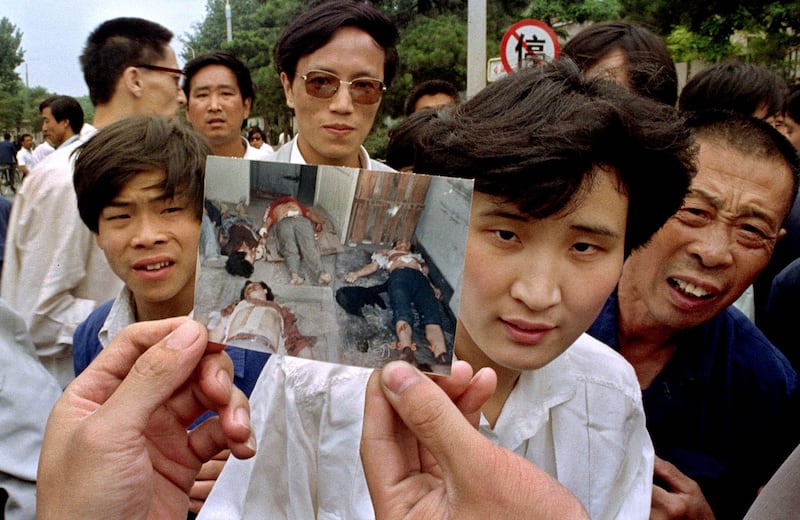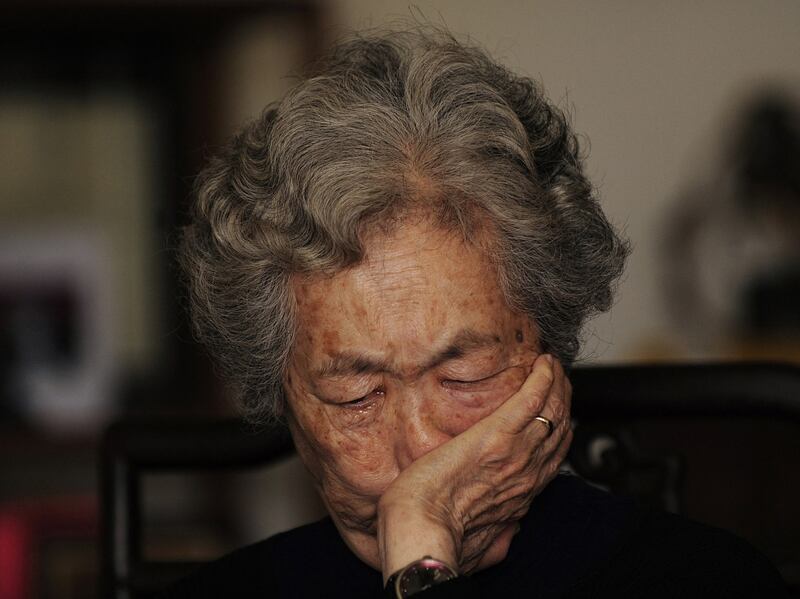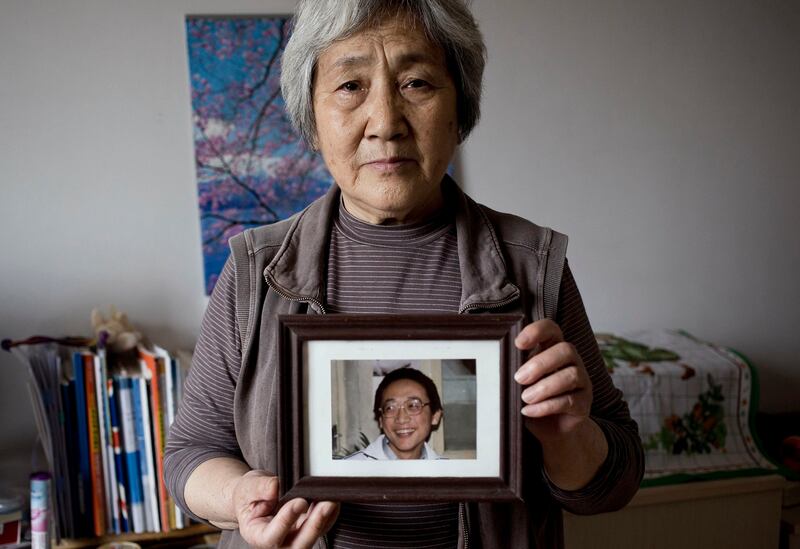Tiananmen Mothers, a group representing victims of the June 4 massacre that ended weeks of pro-democracy protests in 1989 has called on Chinese leader Xi Jinping to take responsibility for the actions of the government ahead of this year's 34th anniversary.
"They may believe that they had nothing to do with the order to open fire [on unarmed civilians] back then, but ... it was still done by the party in power, the Communist Party," You Weijie, a spokeswoman for the group told Radio Free Asia on Friday.
"The government of today should take full responsibility and tell the public about everything that took place then," she said.
Public commemoration of the massacre is banned in mainland China, while an annual candlelight vigil that used to mark the anniversary in Hong Kong's Victoria Park has fallen silent after more than three decades, its leaders in prison under a draconian national security law used to crack down on public dissent.
Authorities in China typically place dozens of pro-democracy activists and dissidents under house arrest or other forms of restriction ahead of the politically sensitive date, while members of the Tiananmen Mothers are taken to make offerings to their loved ones under police escort.
Meanwhile, the number of living relatives of people killed in the bloodshed -- ordered by then-supreme leader Deng Xiaoping -- dwindles every year, as the group continues to call on Beijing to make public details of the massacre and its victims, to pursue those responsible, and to award compensation to victims' families.
Dwindling number
More than 70 relatives of victims have died since the group was set up, You said, including seven during the past year alone.
"We are sincere in seeking dialogue with the government," she said. "The government has evaded responsibility for the tragedy that took place that year."
"We won't give up on this," she said.

Meanwhile, Zhang Jingli, who lost her 26-year-old husband Liu Yongliang in the 1989 massacre, wrote on the Tiananmen Mothers' Facebook page that the hardest thing was the lack of official accountability for the violence.
"In the 30 long years that have elapsed, I have been able to bear life's difficulties, but I have nowhere to talk about my pain -- that psychological pain has always been with me," Zhang wrote.
"How could fully armed soldiers and tanks with live ammunition shoot at unarmed students and citizens on the streets of Beijing and in Tiananmen Square?" she said.

You said she, like Zhang, had been left to raise a child after losing her husband on the square.
"I just had to be brave and get on with it," she said. "As people get older, they have less and less opportunity to stand up and speak out."
She said the group expects to be allowed to make its offerings as usual at Beijing's Wan'an cemetery.
"We have gone there every year, so I don't think they will make it hard for us this year," she said.

This year's anniversary comes as South Korea's biggest human rights group honored jailed Hong Kong barrister and former Tiananmen vigil organizer Chow Hang-tung with its 2023 Gwangju Human Rights Award, in spite of a recent visit from Chinese consular officials asking them to reverse the decision.
Chow is currently serving a 15-month sentence for "inciting" people to hold a vigil for the victims of the 1989 Tiananmen massacre.
She also stands accused of “incitement to subvert state power,” with the prosecution claiming that she and the Hong Kong Alliance in Support of Patriotic Democratic Movements of China used the now-banned vigils to incite the overthrow of the Chinese government.
Translated by Luisetta Mudie. Edited by Malcolm Foster.
